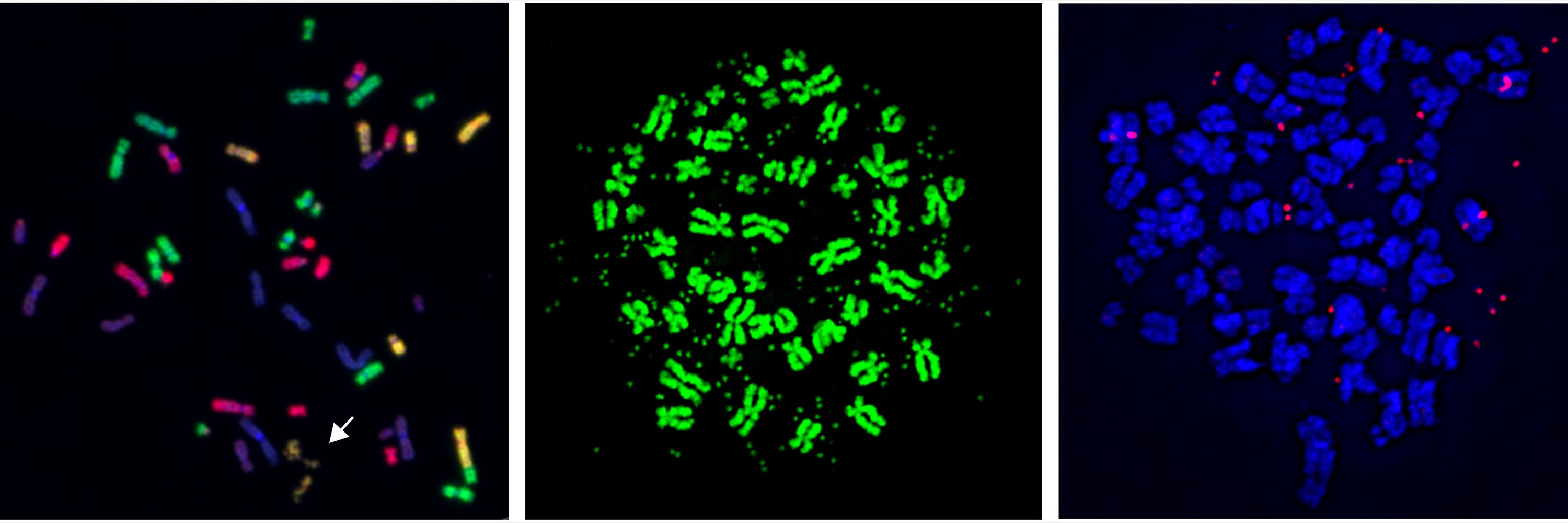
www.thelylab.org
We (sidrituruci.bsky.social et al) discovered that CFAP20 helps clear stalled RNAPII, preventing harmful clashes with DNA replication machinery. This protects cells from R-loops and genome instability.
Full paper: www.nature.com/articles/s41...

We (sidrituruci.bsky.social et al) discovered that CFAP20 helps clear stalled RNAPII, preventing harmful clashes with DNA replication machinery. This protects cells from R-loops and genome instability.
Full paper: www.nature.com/articles/s41...
Our new article on @biorxivpreprint.bsky.social shows why chromosome cohesion fails in aging eggs & how to improve it.
www.biorxiv.org/content/10.6... (1/10)
Our new article on @biorxivpreprint.bsky.social shows why chromosome cohesion fails in aging eggs & how to improve it.
www.biorxiv.org/content/10.6... (1/10)
Open access link: www.nature.com/articles/s41...
(1/9)
Open access link: www.nature.com/articles/s41...
(1/9)
Now out in Nature Genetics: @josjonkers.bsky.social and I describe currently available mouse models of BRCA1/2 and their roles in understanding BRCA1/2 biology, particularly in normal development, tumor suppression and therapy response.
www.nature.com/articles/s41...

Now out in Nature Genetics: @josjonkers.bsky.social and I describe currently available mouse models of BRCA1/2 and their roles in understanding BRCA1/2 biology, particularly in normal development, tumor suppression and therapy response.
www.nature.com/articles/s41...
www.biorxiv.org/content/10.1...

www.biorxiv.org/content/10.1...

www.biorxiv.org/content/10.6...
www.biorxiv.org/content/10.6...

rdcu.be/eWHD2
We characterize interphase chromatin folding programs with distinct modes of mitotic inheritance and identify the chromosome-intrinsic capacity to form a microcompartment of active CREs during mitotic exit.

rdcu.be/eWHD2
We characterize interphase chromatin folding programs with distinct modes of mitotic inheritance and identify the chromosome-intrinsic capacity to form a microcompartment of active CREs during mitotic exit.
www.nature.com/articles/s41...

www.nature.com/articles/s41...

www.nature.com/articles/s41...

www.nature.com/articles/s41...
www.science.org/doi/10.1126/...

www.science.org/doi/10.1126/...
Our study reveals how cohesin guides focused and accurate homology search.
Read more 👉 www.science.org/doi/10.1126/...
Follow along for key insights and updates! 🧵

Our study reveals how cohesin guides focused and accurate homology search.
Read more 👉 www.science.org/doi/10.1126/...
Follow along for key insights and updates! 🧵

We are thrilled to introduce our framework to track #ongoingCIN by leveraging single-cell genomics and CIN signatures:
www.biorxiv.org/content/10.1...

We are thrilled to introduce our framework to track #ongoingCIN by leveraging single-cell genomics and CIN signatures:
www.biorxiv.org/content/10.1...
events.faseb.org/event/Aneupl...

events.faseb.org/event/Aneupl...


Here we investigated the adaptive remodeling of a protein-protein interaction surface essential for telomere protection.
Congrats to whole team!
www.science.org/doi/10.1126/...

Here we investigated the adaptive remodeling of a protein-protein interaction surface essential for telomere protection.
Congrats to whole team!
www.science.org/doi/10.1126/...
@natsmb.nature.com. A wonderful team effort across the centromere community, across @jansenlab.bsky.social @naltemose.bsky.social @dfachinetti.bsky.social and Giunta labs. Happy reading! 1/4
www.nature.com/articles/s41...

@natsmb.nature.com. A wonderful team effort across the centromere community, across @jansenlab.bsky.social @naltemose.bsky.social @dfachinetti.bsky.social and Giunta labs. Happy reading! 1/4
www.nature.com/articles/s41...
Zoom link: uniroma1.zoom.us/j/95149984403
Register here to become part of our community: docs.google.com/forms/d/e/1F...

Zoom link: uniroma1.zoom.us/j/95149984403
Register here to become part of our community: docs.google.com/forms/d/e/1F...
Spoiler: when NHEJ is out, polymerase theta steps in to fix persistent G1-phase breaks during the next S phase — not in mitosis! And for our fellow B cell fans, we explore how Pol θ contributes to immunoglobulin class switching.
@natcomms.nature.com
rdcu.be/eRTSe

Spoiler: when NHEJ is out, polymerase theta steps in to fix persistent G1-phase breaks during the next S phase — not in mitosis! And for our fellow B cell fans, we explore how Pol θ contributes to immunoglobulin class switching.
@natcomms.nature.com
rdcu.be/eRTSe
Discover it in our new Nature paper! We show centromeres transition gradually via a mix of drift, selection, and sex, reaching new states that still work with the kinetochore.
👉 doi.org/10.1038/s41586-025-09779-1

Discover it in our new Nature paper! We show centromeres transition gradually via a mix of drift, selection, and sex, reaching new states that still work with the kinetochore.
👉 doi.org/10.1038/s41586-025-09779-1


